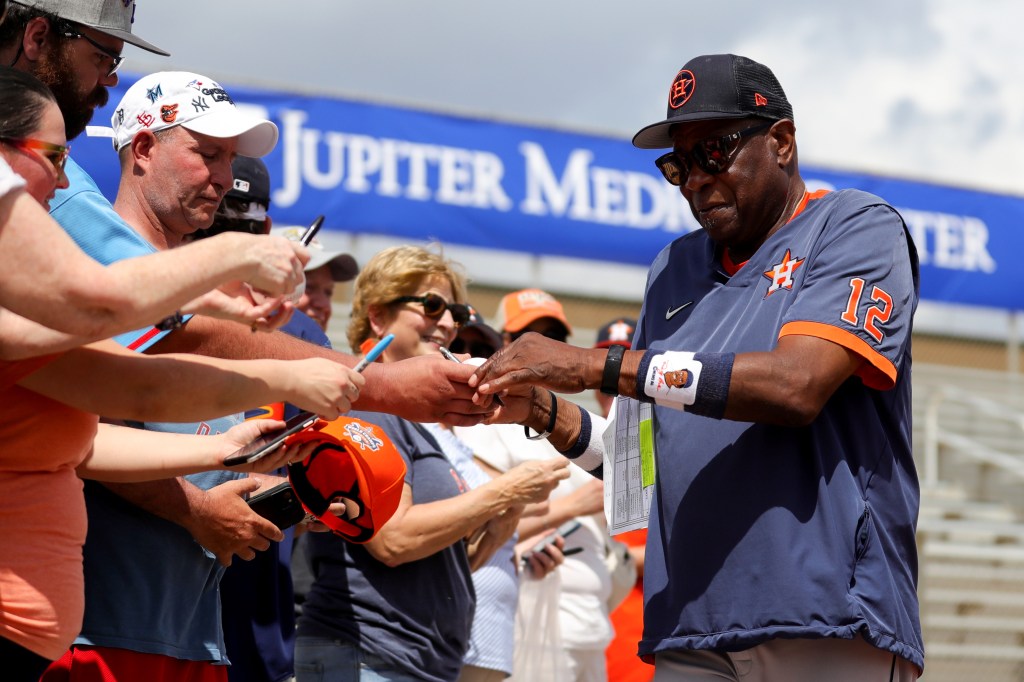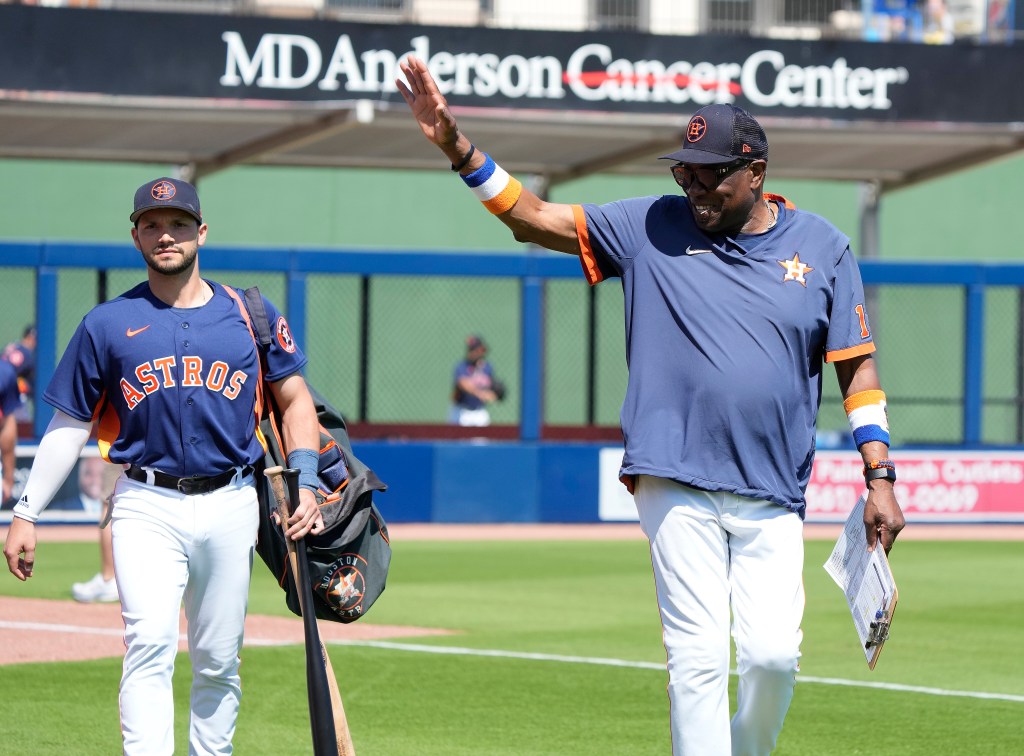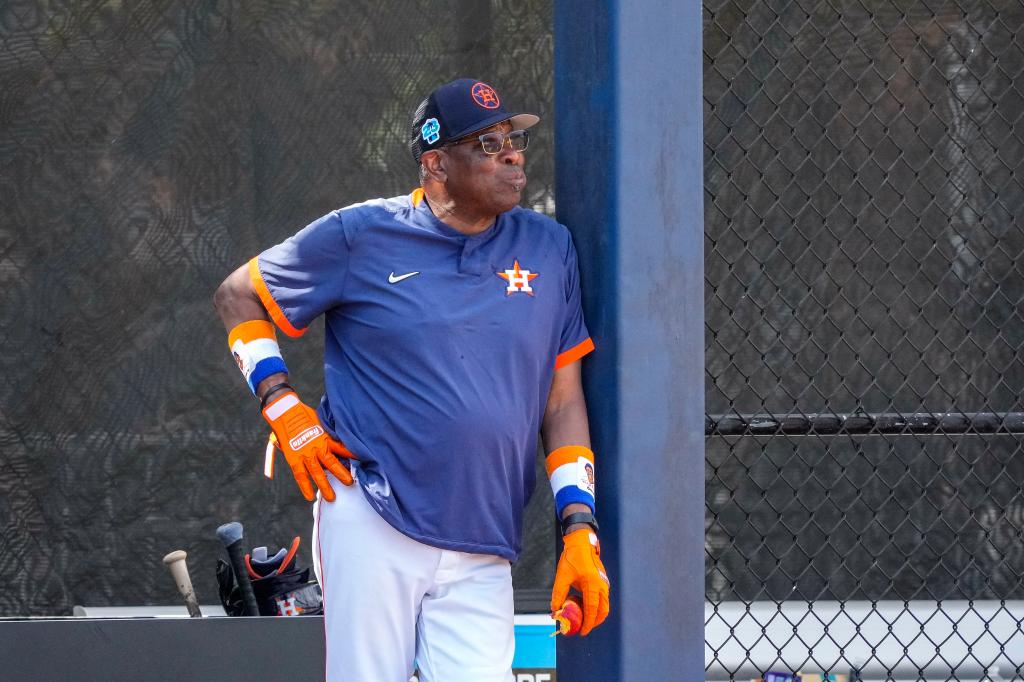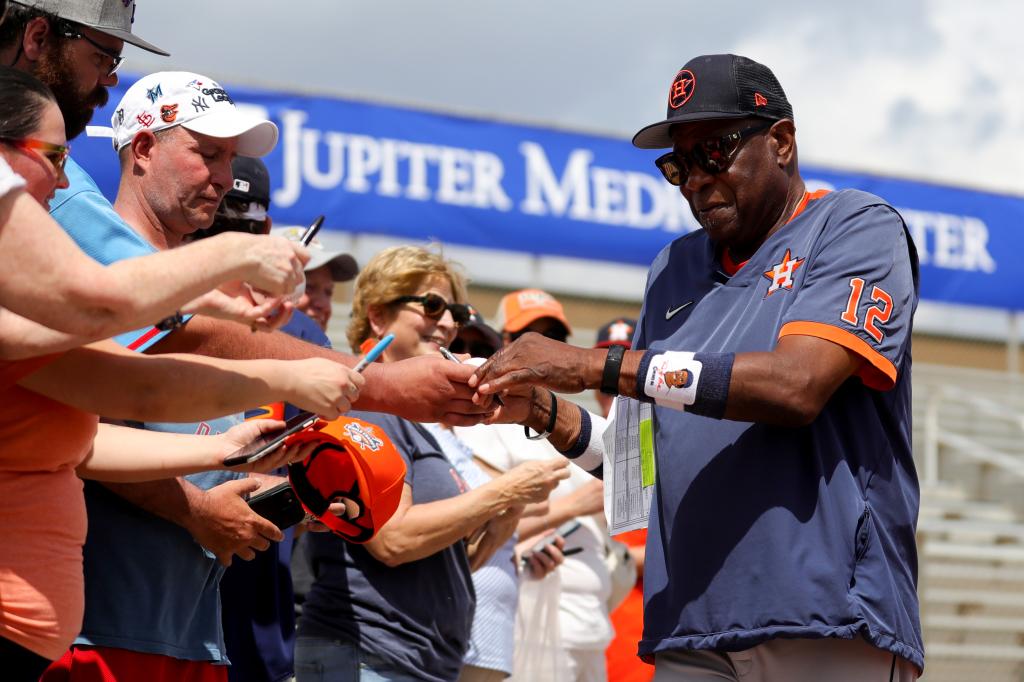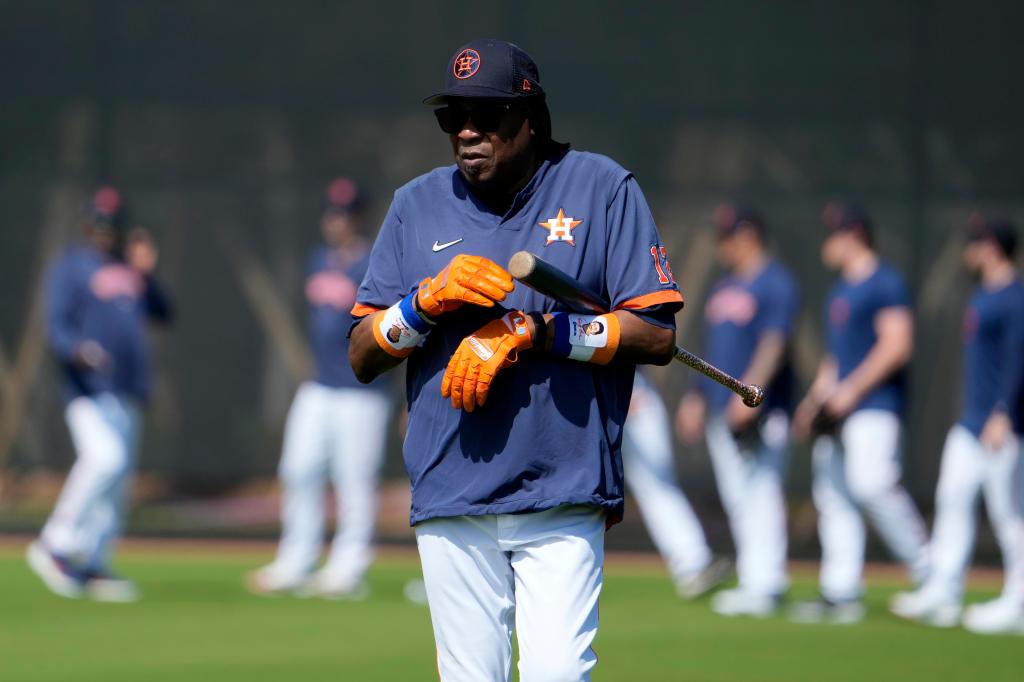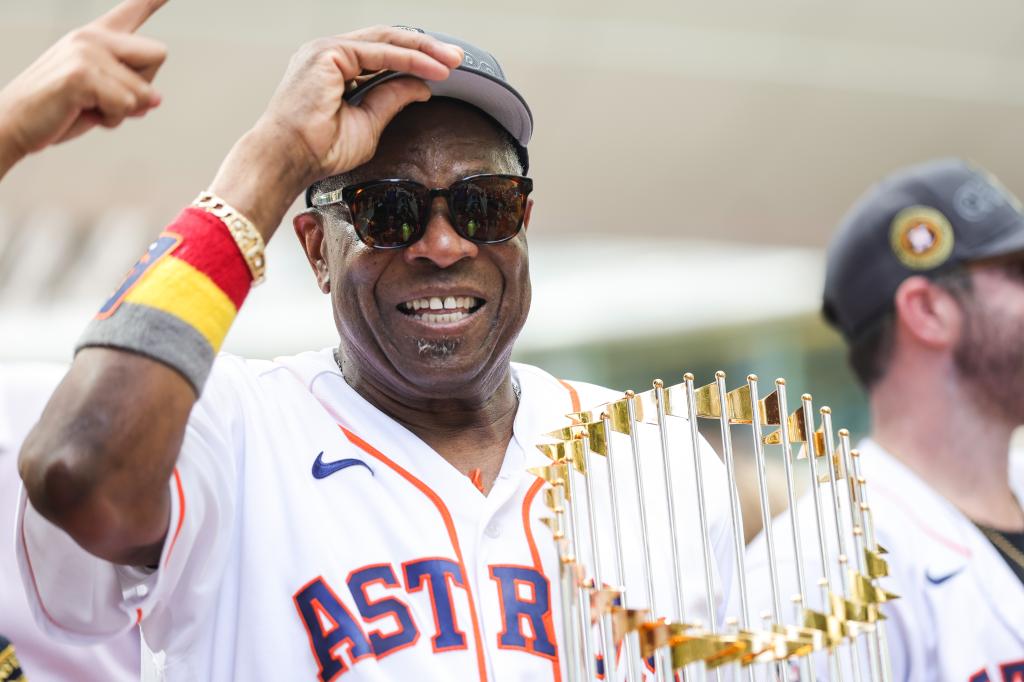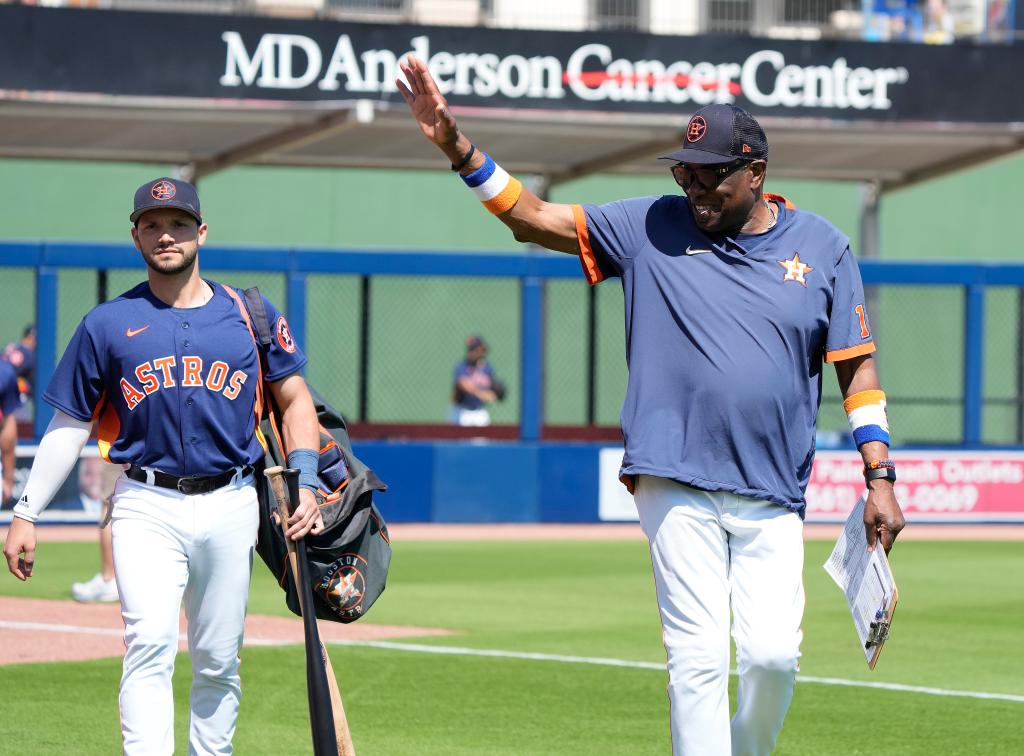WEST PALM BEACH, Fla. — Fifty-five years ago Dusty Baker reported to spring camp here, just like he has a dozen times since for three different teams over that more-than-half-century in this very city. No surprise, Dusty’s changed since coming here as a California kid fresh out of Del Campo High School. But times — and this town — have changed even more. Maybe not completely, but very noticeably so.
Dusty reported here this time as a World Series-winning manager beloved by everyone who knows him, and many who don’t. At 73, he’s a Renaissance man very likely and appropriately on his way to the Hall of Fame, who arrived following calls of congrats from Barack Obama and Snoop Dogg, not the wide-eyed 18-year-old who came to help support a family recently roiled by the divorce of his parents. The area, meantime, has transformed.
Back in 1968 the country was in turmoil, and young Dusty had his eyes wide open as a teenaged minor leaguer. “It was a tenuous time in our country,” Baker recalled.
Baker played at several minor-league outposts in the South with the Braves — including as a visiting player in Little Rock, Ark., where he was called so many names he considered going back home to Northern California — and was stationed in both Carolinas as a Marine. He camped for years in Vero Beach as a star with the excellent Dodgers teams, and that was no picnic either in the ’70s, he recalled. But back then, this town stood out for racial issues.
“I had as many problems here as I had anywhere in the country,” he said.
The month after Dusty’s first spring here, civil rights leader Martin Luther King Jr. was murdered. Blacks were still fighting hard for rights four years after the Civil Rights Act, and that included the right to patronize certain businesses that were off limits. Dusty vividly recalled a billiards establishment here that barred him.
“They wouldn’t serve me, first because I was speaking Spanish. Then I started speaking English to some white guys and they snatched the pool cue out of my hands and they said, ‘We wouldn’t serve Maury Wills, so we won’t serve you,’ ” Baker recalled.
“What do you mean?” Baker remembered asking one of them.
“Because he’s a light-skinned brother,” came the response.
A despondent Baker repaired to the Braves’ major league team hotel “crying and pissed off,” he recalled. There he told the upsetting tale to Braves superstar Hank Aaron, who had promised his parents to watch after Dusty after Johnnie Baker Sr. objected to his son eschewing a basketball scholarship to Santa Clara University and heading East, and South. He recalled that Aaron called the NAACP but nothing came of it.
It was the Aaron Brothers and Ralph Garr, his roommate, who told him the rules.
“[Shoot], there’s rules now,” Baker said.
The rules aren’t nearly as overt or oppressive, and Baker’s accommodations now are a far cry from the Braves’ minor-league Dinkler Hotel on Palm Beach Lakes Blvd., by virtue of all his success, as a ballplayer and then a 25-year major league manager. His son Darren is here as a Washington Nationals minor leaguer, and rooms with his dad, who sets parenting rules — necessary rules. Darren needs to keep his room tidy and get himself up for camp. He’s having a much more privileged time here than Dusty did.
“If you have the money you can almost go where you want to. There are underlying [feelings]. But at least it’s not in your face,” Baker said.
He follows the news, and well knows prejudice still exists in this country. He sees racial strife in the headlines. But it’s not something that permeates his life while in the South now. He sees interracial couples walking down the street arm in arm here without inspiring double takes.
“It’s changed a lot. It’s really progressed,” Baker said.
There are no outward, obvious signs he’s back in the South he first came to know and fear.
“I haven’t felt anything. Most of the time you feel it before you hear it or you see it,” Baker said. “You hope things have gotten better at least externally. You can’t do anything about the internal. You can’t do anything about changing a person’s heart.”
Nowadays, thankfully, Baker’s concerns are more mundane, and about the business of baseball. The first and most important goal is to win the next championship. When he finally won his first title after coming close multiple times, the emotion he felt most was “gratefulness,” he said.
“Grateful to have inherited a good team and had good guys,” Baker said.
Baker’s hiring may have been the best ever in baseball because the Astros found the one guy everyone liked, the antidote to blunt one of the biggest scandals in the game. They also got a guy who could always manage.
“I’m a better manager than before because I don’t care what anyone says anymore,” Baker said.
Not that he wasn’t always pretty damn good.
“I didn’t get to 2,000 [wins] for nothing,” he said.
He’s still going.
“You can’t rest on what you’ve done. That’s what I learned when I was playing with the Dodgers and I asked Sadaharu Oh, a nine-time MVP, what kept him motivated. And he says [MVP] number 10, I swear,” Baker said. “Phil Jackson, Bill Walsh, Red Auerbach … those guys quested for another and another and another. I don’t know how many anothers are in front of me. But I’d say one more another at least.”
The bigger issues these days are relatively tiny ones, and that’s a good thing. The Astros for a decade now are one of the most analytically driven teams, and it’s obviously worked for them. But at least when it comes to baseball, Baker doesn’t want to totally forget the past.
“I’ve always been a person that’s willing and open-minded enough to try to combine the two. I realize what’s modern and what’s not but I prefer to use what’s modern but to use old morals and ideas with it,” Baker said. “Just because it’s modern doesn’t necessarily make it right.”
All managers today who are more than just extensions of the front office have these battles. But Baker is the rare one who can say it aloud, even if it’s sometimes in hushed tones.
He’s also one who can do what he wants.
“Most of the time,” he whispered.
The wise Astros did allow him to win the title his way, at least in some very key instances. No way any analytics guy wanted him batting rookie Jeremy Pena second, and Pena became World Series MVP. No way would they keep playing Martin Maldonado with that sub .186 batting average, but he became vital for the pitching staff.
Maybe they will push less after such October successes.
“Probably not,” he said with a smile.
Baker doesn’t see things going back to the way they were in baseball.
“Analytical people have been in power for a while, and power is not easily wrestled,” he said.
It’s all good. This is a battle Dusty happily endures. He’s happy to be back. The balance works beautifully for the Astros, even if he has to push back sometimes. Where it counts in life here, things are much better — not perfect, but better.


